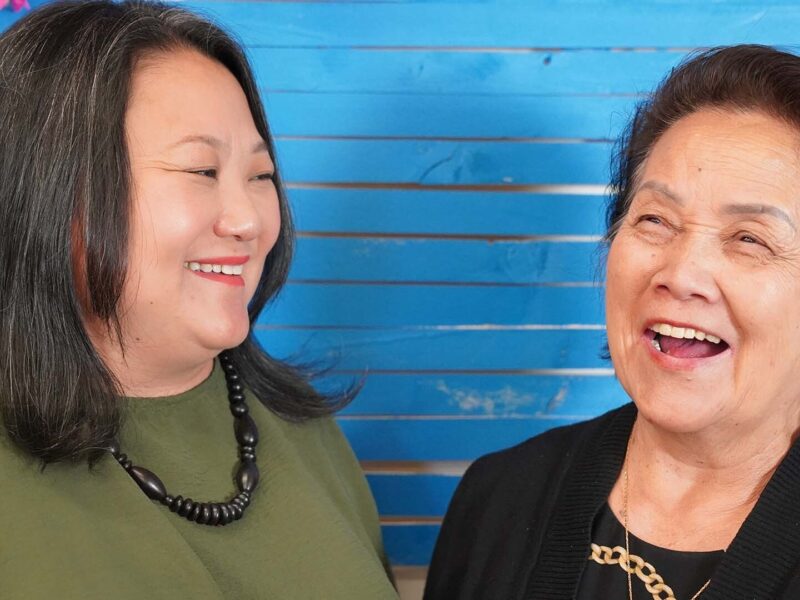Here are answers to common questions on how to include a charitable giving fund in your estate plan.
Estate planning and charitable giving often go hand in hand. According to a 2023 planned giving report by FreeWill, 15% of its users included charitable bequests in their estate plans, with an average gift of $46,594.1
When determining how you would like to divide your assets after you pass, it's a great idea to consider what role you would like philanthropy to play in your legacy. One of the best ways to carry out your giving both now, and in the future, is through setting up a donor advised fund (DAF).
A DAF is a flexible and efficient way to organize your charitable giving to impact your community. Here are answers to a few questions many donors have about how to successfully make a DAF part of a long-term giving and estate plan.
Can a donor advised fund last forever?
A DAF is not designed for generation after generation after generation to continue advising on the fund. However, it can be used as a vehicle to maximize your charitable giving both during and after your lifetime. Your legacy can continue in perpetuity through other types of charitable funds, like a designated fund or unrestricted fund.
As part of your estate plan, you can appoint family members such as a spouse and children, or a family friend, to work with you and your advisor. These individuals can be involved in your initial giving plan, take over after you pass or be named a beneficiary to advise the fund upon your death. They are called successor advisors.
After your passing, the Foundation will work with your designated donor advised fund successor advisor to continue making grants from your fund until the last listed advisor on the fund dies. Then, the remaining charitable assets transition to another fund type to continue benefiting the community.
Generations of Giving
At the Saint Paul & Minnesota Foundation, we typically work with up to two generations of donors, but sometimes there are more!
For Christine Noonan, giving is a family affair. Something initially started by her parents George and Judy has morphed into a family tradition that includes three generations of givers after Christine and her husband decided to establish a donor advised fund of their own with the Saint Paul & Minnesota Foundation.
Inspired by their parents Jack and Alvida Browne, Jeff and his brother Kip partner with the Saint Paul & Minnesota Foundation and plan to carry on the practice of giving with their children.
Can a donor advised fund be part of an estate?
If a DAF isn’t already part of your estate, here’s why it should be. When you leave a DAF in your estate plan, it can often financially benefit both you and the organizations you choose to support.
Based on what you want to do with your assets, you can allocate a certain percentage to be left to family and a portion to your fund to continue supporting multiple organizations or causes.
If you have already established a donor advised fund, when you pass, those assets can be allocated to a designated fund, unrestricted or restricted fund. This allows for the fund to continue carrying on your philanthropic mission.
For example, Connie, a retired probation officer who loves dogs, established a future designated fund with the Foundation that will be financed by her will. By making a decision to partner with Foundation, she can continue supporting causes she cares about after her death.
A DAF can be funded in multiple ways, including with non-cash assets. These assets can include items such as real estate, private stock, charitable gift annuities, retirement assets, life insurance and more.
What happens to a donor advised fund at death?
After death, your DAF can continue carrying on your charitable giving legacy. As stated before, your DAF can be passed on to family or a close friend for them to advise, or even divided to make multiple DAF accounts for each successor.
Based on the assets in your fund, our philanthropic advisors can explore different options. For example, if you have $30,000 in your fund at the Foundation and have three children, you can break the assets up into $10,000 increments per successor and create three new donor advised funds.
At the Foundation, we work with your donor advised fund successor advisors before they have responsibility for the fund, to ensure that they are familiar with the fund and your goals. With your permission, we can also support them on their giving journey. Here are two examples:
Foundation donors Sally and Karen started early with their two young sons, asking the boys to participate in family giving decisions.
Sydney decided to have her neighbor Mary advise her fund after she died. Mary continues to carry on Sydney’s legacy and love for babies by providing funding to the neonatal intensive care unit (NICU) at M Health Fairview St. John’s Hospital in Maplewood.
Can a donor advised fund be a beneficiary?
Yes, a DAF can be a beneficiary. You may have heard of naming a charitable organization as a beneficiary. At the Foundation you can name your DAF as a beneficiary in your estate plan through your will, life insurance or charitable remainder trust.
Naming a DAF as a beneficiary makes it easier for your designated trustee to carry out your wishes. This also allows you the ability to effortlessly change and adjust how your assets are distributed after your death, especially if you want to give funds to multiple organizations.
The Saint Paul & Minnesota Foundation does not provide tax, legal or accounting advice. Please consult your own tax, legal and accounting advisors regarding your individual situation before engaging in any transaction.
1Statistics come from the 2023 Planned Giving Report by Freewill












